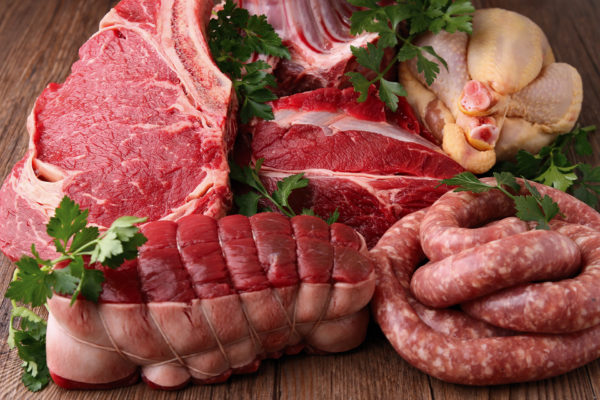MMU Calls for Ban on Meat Imports to J&K Over Halal Integrity; Government Pledges Stricter Rules
By: Javid Amin | 11 October 2025
Religious bodies press for local sourcing amid outrage over “rotten imported meat”; government promises stricter rules, not a ban.
In an assertive move, the Muttahida Majlis-e-Ulema (MMU), a coalition of leading Islamic scholars and religious bodies in Jammu & Kashmir, has urged the J&K administration to ban the import of meat and poultry from outside the Union Territory. The MMU’s appeal hinges on concerns about halal compliance, transparency in slaughtering processes, and risks to religious dietary integrity.
The demand comes amidst widespread alarm over seizures of imported meat alleged to be rotting or improperly labeled, intensifying a debate that straddles religion, food safety, local economy, and governance.
The Appeal: What MMU Wants, What Triggered It
What MMU Is Demanding
After convening a high-level meeting in Srinagar under the chairmanship of Grand Mufti Nasir-ul-Islam, the MMU issued a statement with several key demands:
-
That meat and poultry imported from outside J&K should cease being sold or served in hotels, restaurants, and markets in the Valley. (i.e. a de facto ban on external imports of slaughtered meat)
-
That all such meat and poultry products entering J&K must carry mandatory halal certification, origin labeling, processing details, and traceability.
-
That the regulatory agencies (FDA, municipal bodies, food safety authorities) intensify monitoring, inspections, and enforcement of halal standards, hygiene norms, and labeling rules.
-
Increasing reliance on local meat and poultry sourcing from within J&K, to ensure compliance and protect local farmers and butchers.
Their rationale: “Halal is not just a label — it’s a religious obligation. We cannot compromise on this,” said one senior MMU member.
What Sparked the Appeal
The MMU did not act in isolation; several recent incidents, public health scares, legal enforcement actions, and community anxieties appear to have precipitated this call.
Mass Seizures & Rotten Meat Outcry
In August 2025, authorities in Kashmir reportedly seized large quantities of imported meat and poultry that were spoiled, improperly packaged, or lacking clear source or labeling. One news report puts the figure in excess of 13,000 kilograms of meat found either rotten or unfit for consumption.
Public outrage followed. Many questioned whether the meat was being passed off as halal or was safe for consumption.
Halal Certification & Transparency Concerns
Religious bodies have raised doubts over the credibility and verification of halal certification of imported meat, and whether slaughtering and processing methods used outside are in compliance with Islamic rites.
They argue that labeling alone is insufficient unless backed by independent auditing, chain-of-custody records, and local oversight.
Growing Public Sentiment & Local Economic Interests
Within Jammu & Kashmir, many local butchers, poultry farmers, and community groups support or at least sympathize with the demand. They view it as both a religious safeguard and an economic protection measure—ensuring local producers have priority markets if imports are restricted.
Thus, the MMU’s appeal taps into a confluence of religious, health, and economic anxieties.
Government / Regulatory Response: Enforcement, Not a Ban (Yet)
On being pressed about the MMU’s demand for a ban, the Food & Drug Administration (FDA), J&K clarified that as of now, no formal ban is in place. Instead, the administration is moving toward stricter regulatory oversight of imports.
What FDA Has Announced
-
Strict labeling, source disclosure, traceability: Any dressed (slaughtered, processed) meat or poultry entering J&K must include details of origin, processor, slaughter method, and halal status.
-
Hygiene inspections & chain monitoring: The FDA intends to inspect consignments, storage facilities, cold chains, and points of sale more rigorously.
-
Prosecution of violations: Where meat is found spoiled, misbranded, without proper labeling, or in violation of food safety laws, prosecutions or penalties may be initiated.
-
Sourcing more locally: Implicitly endorsing the idea that local meat producers should be encouraged and protected, though avoiding an outright ban.
As stated by Commissioner Smita Sethi:
“We are not imposing a ban, but we are enforcing strict compliance. Whatever is brought into the Valley must have proper labelling, source of origin, processing details, and other necessary information so that customers know exactly what they are buying.”
The FDA has also claimed to investigate recent recoveries of rotten meat—some 1,200 kg in one case—tracking illegal storage points and supply chain violations.
Thus, the official approach is cautious: enhance regulation, enforce existing laws, improve transparency, but not yet concede to the MMU’s ban demand.
Context & Precedents: Halal, Imports & Food Safety in Kashmir
To understand the stakes and constraints, we must look at historical, legal, economic, and societal context.
Halal Standards: Definition, Oversight & Challenges
“Halal” in Islamic jurisprudence refers to what is permissible. For meat, this extends beyond what animal is allowed (e.g. pork is forbidden) to the method of slaughter, handling, cleanliness, absence of contamination, and assurance that no prohibited substances are used.
In practice, halal certification in India is fragmented. Multiple certifying agencies operate, with varying credibility, standards, and auditing rigor. Ensuring uniformity, verification, chain-of-custody, and preventing fraudulent labeling are persistent challenges.
In regions like Kashmir, where religious identity is potent, any suspicion of mislabeling or non-halal supply can provoke strong reactions.
Food Safety & Import Oversight in J&K
Meat and poultry imports into J&K must pass through customs, cold chains, inspection, and regulatory agencies. However, given variable infrastructure, cold storage, local inspections, and possible corruption or oversight gaps, imported meat may sometimes degrade or lose integrity.
The FDA’s recent push for stricter enforcement suggests such gaps are being acknowledged.
Prior Incidents: Rotten Meat & Scandals
The seizure of thousands of kilograms of “rotten imported meat” earlier in 2025 already set off a food safety scandal in Kashmir. That incident, widely reported, triggered public outcry, media debates on halal integrity, and intensified scrutiny.
Earlier, the MMU had also expressed concern over “rotten, non-halal meat” supply lines.
These events contribute to the climate of suspicion that fuels demands for import bans or stricter regulation.
Stakeholders, Interests, Risks & Challenges
Any policy change in meat imports implicates many players. Below is a mapping of primary stakeholders, their incentives, and the key risk vectors.
Stakeholder Map
| Stakeholder | Interests / Incentives | Concerns & Vulnerabilities |
|---|---|---|
| Religious bodies (MMU, ulema) | Assurance of halal integrity, religious compliance, community trust | Overreach, politicization, backlash if enforcement is uneven |
| Local farmers / butchers / poultry producers | Protection from competition, expanded market share, price stability | Ability to scale, animal health standards, infrastructure, cost competitiveness |
| Hotels / restaurants / caterers | Reliable supply, cost efficiency, assurance on halal claims | Supply chain disruptions, cost spikes, compliance costs |
| Consumers (Muslim community) | Assurance that meat is truly halal, food safety, affordability | Mislabeling, adulteration, limited choice, price rise |
| Importers / wholesalers | Business profits, economies of scale, supply diversity | Regulatory compliance cost, risk of confiscation, reputational damage |
| FDA / regulatory agencies / government | Public health, religious peace, regulatory oversight | Implementation capacity, enforcement resources, political backlash, legal challenges |
| Opposition / political voices | Leverage issue politically, champion local rights | Credibility if seen as purely political, risk of backlash from non-Muslim or trade sectors |
Key Risks & Challenges
-
Trade Restriction vs Constitutional / Legal Constraints
An outright ban may run into legal limitations—trade is often under central jurisdiction or subject to inter-state commerce constraints. J&K’s status and powers complicate matters. -
Supply & Demand Imbalance
If local production cannot meet demand (in volume, quality, hygiene), banning imports may lead to shortages, price rises, or black markets. -
Infrastructure & Capacity
Local producers may lack infrastructure (cold chain, slaughterhouses, certification systems) to scale up quickly. -
Implementation & Corruption Risk
In complex supply chains, weak monitoring or corruption could allow mislabels, bribery, or loopholes. -
Economic Disruption
Businesses reliant on existing import supply lines (restaurants, large hotels, hotel chains) may suffer. -
Communal / Political Backlash
If the ban is perceived as advancing a religious agenda or discriminating against non-Muslims, or hurting trade ties, it may provoke opposition. -
Judicial Scrutiny
Importers or business associations may challenge bans/strict rules in court, seeking interim relief.
Analysis & Likely Scenarios
Given the demands and constraints, what outcomes seem plausible? The MMU’s call is strong, but execution will require balancing many considerations.
Possible Outcomes
-
Stricter Regulatory Regime, No Ban
This is the most likely near-term scenario: the government enforces more stringent halal certification, labeling, chain traceability, inspection and punishes noncompliance, but stops short of a formal ban.
The FDA’s current statements align with this path. -
Partial or Conditional Import Restrictions
The government may impose restrictions on certain types of meat (e.g. dressed versus live animals), or restrict imports lacking certain certification. Some regions or markets may be exempt initially. -
Incentives for Local Production + Phased Ban
Over a transition period, imports may be gradually restricted while local production capacity is ramped up with subsidies, infrastructure investment, and halal certification support. -
Selective Ban / Moratorium
In case of repeated violations or health scandal escalation, a temporary ban or moratorium may be imposed on imported meat until audits and traceability systems are established. -
Judicial Stay / Legal Reversal
Business associations or importers may secure interim court orders blocking bans or strictures, citing trade law, constitutional rights, or open market principles.
What Makes Each Scenario Likely / Less Likely
-
Stricter regulation (Scenario 1) is likeliest because it responds to MMU demands without provoking full trade disruption or legal conflict.
-
Partial restrictions (Scenario 2) may be tested in practice where specific import lines repeatedly violate standards.
-
Phased ban (Scenario 3) is more ambitious and sensitive, requiring serious capacity building and risk of supply shortages.
-
Full ban seems unlikely unless political pressure, public outrage, and food scandal escalation reach tipping points.
-
Judicial stay is probable in any strict move which impinges on trade or business livelihoods.
Implications & Significance
Even before any ban, the MMU’s call is significant. It signals how food policy, religion, and governance are interacting in J&K today. Below are key implications.
Religious & Identity Assertion
The appeal underscores that dietary practices are deeply tied to religious identity in Kashmir. Demands over halal integrity reflect not only food safety but religious legitimacy, dignity, and community trust.
Local Economy & Agriculture Push
A successful shift toward local procurement can strengthen agricultural and poultry sectors within J&K, create jobs, reduce dependence on outside supply chains, and reinvest flow of money locally.
However, capacity enhancement, infrastructure, quality controls, veterinary support, cold chain and slaughterhouse modernization are critical for this shift to succeed.
Governance & Trust Building
If regulatory enforcement is fair, transparent, and consistent, the move may strengthen faith in institutions. But if perceived as selective or heavy-handed, it risks fueling suspicion that regulations serve political or religious majoritarian interests.
Precedent for Other Goods & Religious Claims
If meat import bans or strict regulation succeed in J&K on religious grounds, it may set a precedent for similar demands over other religiously sensitive goods (e.g. halal certification for processed foods, pharmaceuticals, sacrificial practices). It also feeds into broader debates over religious accommodations in India’s federal system.
Trade, Legal & Constitutional Balances
This will test the boundaries of trade regulation, state/union territory rights versus central oversight, food safety law, and the judiciary’s role in adjudicating religiously sensitive regulatory policies.
Communal Balance & Perceptions
In multi-religious regions, moves that tie food policy to religious enforcement must tread carefully to avoid being perceived as exclusionary or infringing minority rights. Equally, policy approach must ensure minority communities are not marginalized in interpretation or access.




